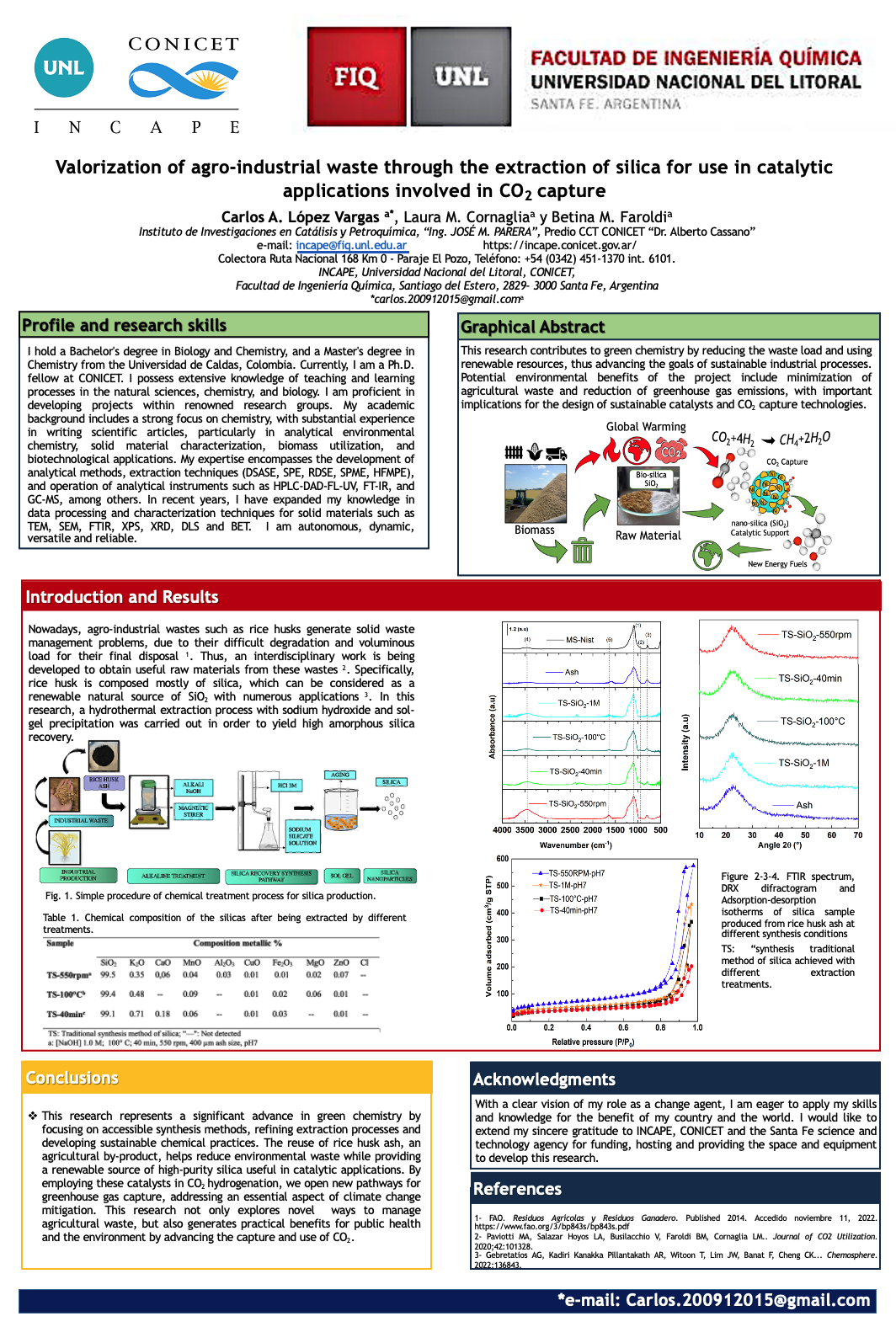
The goal of this research was to develop advanced silica materials from rice husk ash. A renewable and abundant agro-industrial waste that causes problems of accumulation and final disposal in the environment. Using extraction and synthesis methods, nanometric silica was produced. This silica was then used as a support material for nickel-based catalysts applied in CO2 hydrogenation reactions.This silica was then used as a support material for the development of nickel-based catalysts applied in CO2 hydrogenation reactions. The catalysts, once evaluated, demonstrated high CO2 conversion rates (>50%). This research contributes to green chemistry by reducing waste load and utilizing renewable resources (agricultural biomass), thus advancing the goals of sustainable industrial processes. Potential environmental benefits of the project include minimization of agricultural waste and reduction of greenhouse gas emissions, with important implications for the design of sustainable catalysts and CO2 capture technologies.
The reuse of rice husk ash, an agricultural by-product, helps reduce environmental waste while providing a renewable source of high-purity silica useful in catalytic applications. By employing these catalysts in CO2 hydrogenation, we open new pathways for greenhouse gas capture, addressing an essential aspect of climate change mitigation. This research not only explores novel ways to manage agricultural waste, but also generates practical benefits for the environment by advancing the capture and use of CO2.